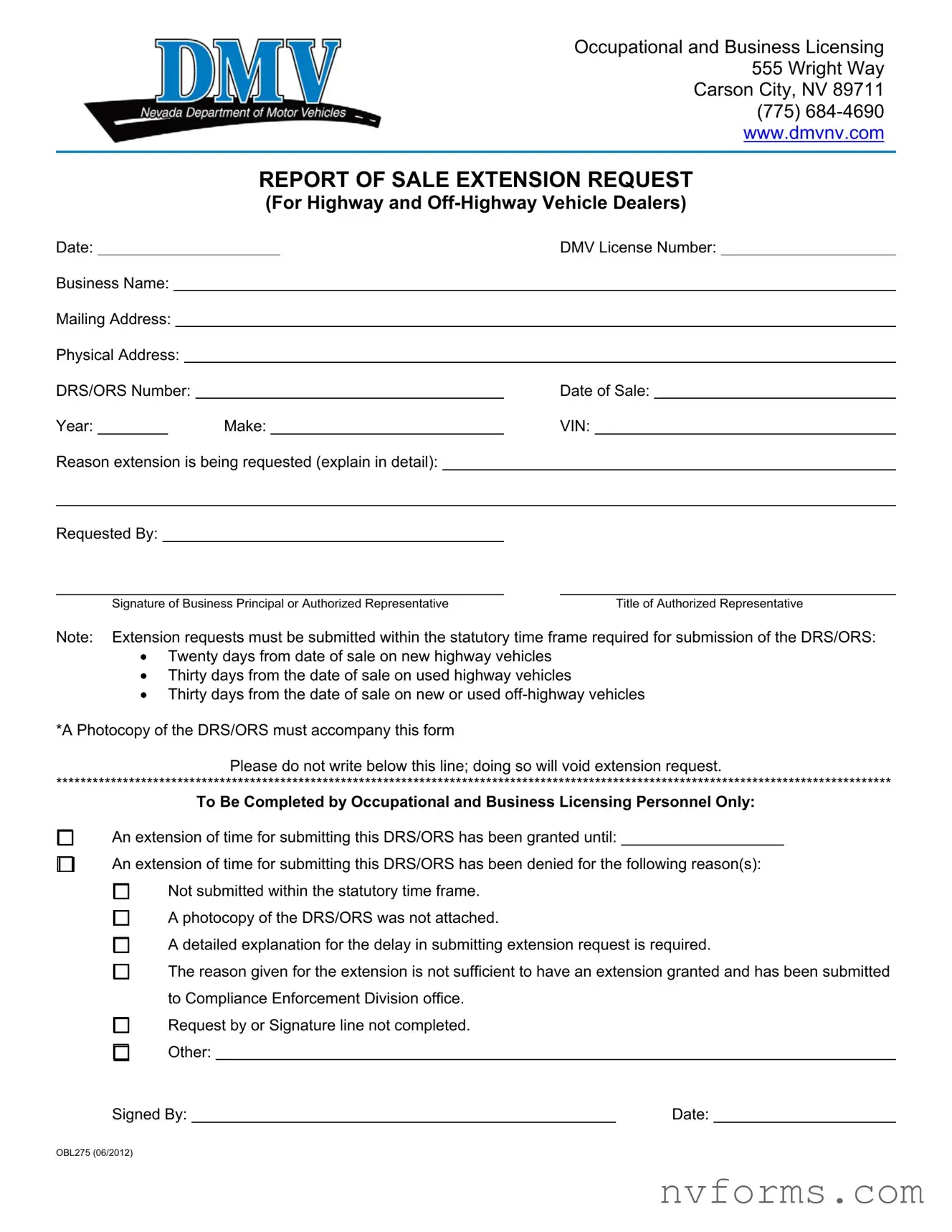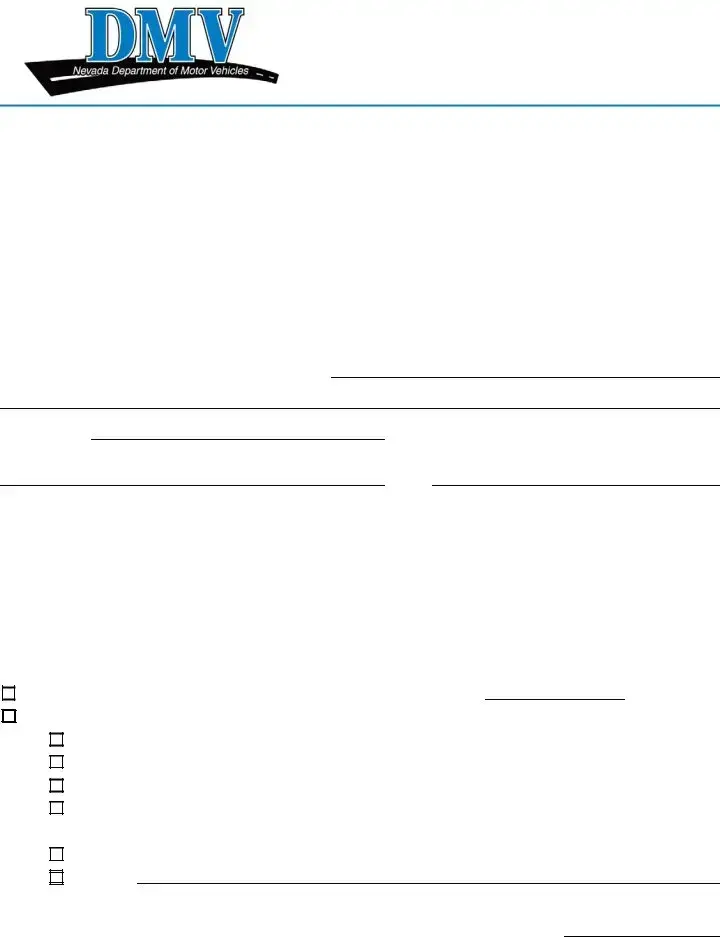Fill Out a Valid Dmv Obl275 Template
The DMV OBL275 form serves as an essential document for highway and off-highway vehicle dealers in Nevada, facilitating the process to request extensions on sales report submissions. Located at 555 Wright Way in Carson City and accessible via the Nevada Department of Motor Vehicles website, this form requires detailed information such as the DMV License Number, Business Name, and specific details of the sale including the Year, Make, and Vehicle Identification Number (VIN). It explicitly outlines the conditions under which an extension can be requested, including the statutory time frames: twenty days for new highway vehicles and thirty days for both used highway vehicles and new or used off-highway vehicles.

Fill Out a Valid Dmv Obl275 Template

Don’t stop now — finish the form
Finish Dmv Obl275 online using an easy step-by-step flow.
